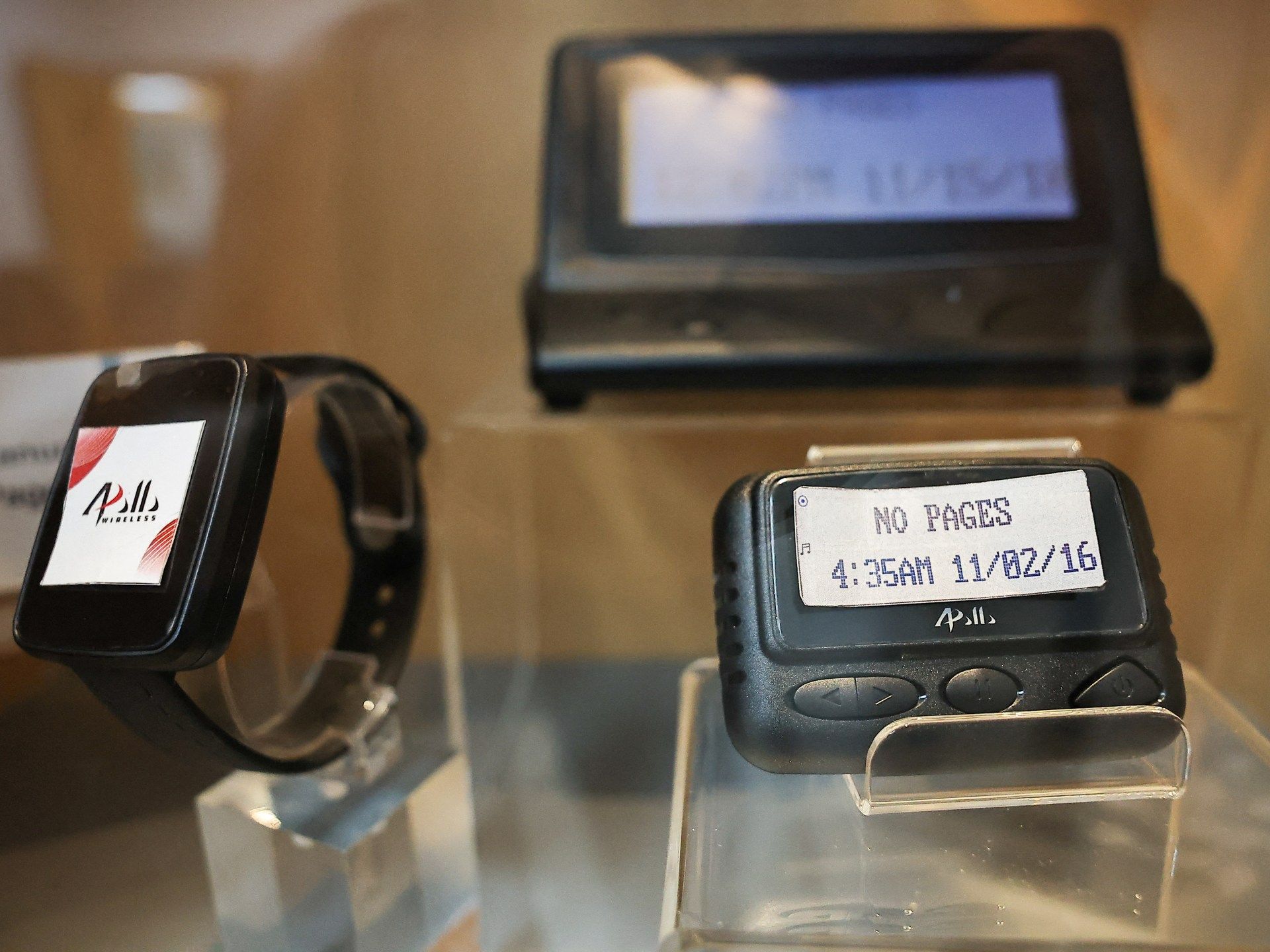Hundreds of pagers belonging to the Hezbollah armed group exploded in Lebanon on Tuesday, killing at least 12 people and injuring around 2,750. Some pagers belonging to the Hezbollah armed group also exploded in Syria, causing some injuries.
Lebanon, Hezbollah and the group's allies have blamed Israel, but what really happened? Many analysts believe the answer may lie in how Hezbollah got hold of the pagers in the first place, because that could provide clues as to whether the devices were manipulated to facilitate the explosions.
Here's what we know and what experts think might have happened:
At around 3:30 p.m. (12:30 GMT), hundreds of pagers began to explode across Lebanon.
Hezbollah issued a statement Tuesday saying two of its fighters and a girl were killed when “pagers belonging to employees of various Hezbollah units and institutions exploded.”
The Iran-backed group blamed the pager blasts on Israel, which has been engaged in tit-for-tat attacks with Hezbollah on the Lebanon-Israel border since the start of Israel's war in Gaza.
The Israeli military has refused to comment on the blasts and Hezbollah has vowed retaliation against Israel.
A Lebanese security source and another source told Reuters news agency that Mossad, Israel's spy agency, placed explosives in 5,000 pagers that Hezbollah had ordered months before the blasts. The sources said a code was sent simultaneously to 3,000 of the pagers, triggering the explosions.
While the exact mechanism used for the pager explosions is unclear at this time, some experts speculate that the radio system the pagers rely on was hacked, possibly through altered code. The pager batteries could have overheated, leading to a process called thermal runaway, which in turn caused the pager batteries to explode.
Some analysts, including Hamish de Bretton-Gordon, a former British army officer and chemical weapons expert, have speculated that the pagers could also have been manipulated along the supply chain and programmed to explode on command.
But Brussels-based political and military analyst Elijah Magnier told Al Jazeera that his sources close to the ground in Lebanon had shared details of initial investigations carried out by Hezbollah into pagers that did not explode.
These investigations suggest that Israel placed between 1 and 3 grams (0.04 to 0.11 oz) of pentaerythritol tetranitrate (PETN), a powerful explosive, in each device.
Lebanon faces a series of sanctions imposed by the United States, the European Union and its Western partners. In addition, the United States, the United Kingdom and their allies, such as Japan, include Hezbollah among “terrorist” organisations.
This means that companies registered on those domains or trading with those countries are wary of doing direct business, especially in technology, with Hezbollah (and often even Lebanon).
In this case, Magnier said, the pagers purchased by Hezbollah were in the possession of a third party and remained in a port for three months, awaiting authorizations, before finally being transferred to the Lebanese group.
Hezbollah suspects that it was during those three months that Israel managed to plant explosives in the devices, the military analyst said.
The rechargeable pagers were confiscated and held for some time before being released and sent to #Lebanon. There, #Israel He tempered the pagers and placed the 1 to 3 gram explosive device in each one.
—Elías J. Magnier 🇪🇺 (@ejmalrai) September 17, 2024
He added that Hezbollah's investigation so far shows that metal balls were placed around the pagers' batteries, allowing the explosive force to propel metal fragments outward, “significantly increasing the lethality of the explosion.” He added that this was also done during the three months the shipment was on hold.
But where and when were pagers made?
Taiwan or Hungary?
The trademark of Taiwanese pager manufacturer Gold Apollo has been identified on the wreckage of exploded pagers, which appear to belong to the company's AR-924 model.
On Wednesday, the company issued a statement denying it had made Hezbollah's pagers and saying only its logo was on the devices.
Instead, the pagers had been built by a Hungarian company called BAC through a licensing agreement, the Taiwanese firm said.
“The design and manufacturing of the products is entirely handled by BAC,” Gold Apollo said in a statement. “We only provide trademark authorization and have no involvement in the design and manufacturing of this product.” BAC has not commented so far.
Evidence so far suggests Hezbollah acquired the pagers around February when the group's leader, Hassan Nasrallah, ordered his members to stop using cellphones because they could be easily intercepted and monitored by Israeli intelligence.

What do we know about BAC?
BAC Consulting is based in the capital of Hungary, Budapest.
Reuters reported that the address listed for BAC is a peach-coloured building in a residential area. While the company's name is posted there on an A4 sheet of paper, an anonymous source present at the building told the news agency that the company has no physical presence in the building despite being registered there.
According to LinkedIn, BAC’s CEO is Cristiana Barsony-Arcidiacono, whose profile says she has worked for several organizations, including UNESCO.
Their profile says: “We offer in-depth consulting that guides our clients on their path to innovation, sustainability, and equity, while ensuring connection and authenticity. Our core services are business development, management consulting, strategy, and partnership planning.”
Al Jazeera contacted BAC but received no response.













